#about periodontal disease
Text
The Sweet Dilemma: Unraveling the Connection Between Sweets and Gum Disease
In this blog post, we'll delve into the intricate relationship between sweets and gum disease, exploring how the sweet indulgences we love may be contributing to the deterioration of our gums.
In the pursuit of pleasure for our taste buds, we often indulge in the delightful world of sweets. From decadent chocolates to sugary candies, our cravings for these treats are almost irresistible. While the immediate joy of consuming sweets is undeniable, it’s crucial to understand the potential consequences of excessive sugar intake on our oral health. One of the most significant threats is the…
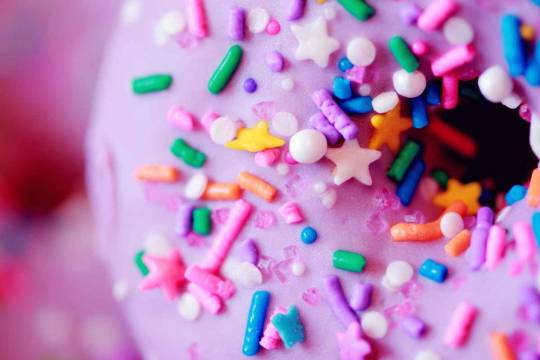
View On WordPress
#0ral surgery#a gum disease#about gum disease#about periodontal disease#advanced gum disease#advanced periodontal#advanced periodontal disease#and brush your teeth#avoid cavities#avoid gum disease#bacteria cause tooth decay#bacteria causes cavities#bacteria cavities#bacteria for teeth#bacteria gum infection#bacteria in tooth infection#bacteria in your gums#bacteria in your mouth#bacteria inside mouth#bacteria of periodontitis#bacteria periodontal disease#bacteria pockets in gums#bacteria that causes gum disease#bacteria that causes periodontal disease#bad breath gum#bad gum disease#bad mouth bacteria#beginning of gum disease#beginning stages of gum disease#bleed while flossing
0 notes
Text
here I go again, trying to tactfully explain in an email to my vet that prophylactic antibiotics are not recommended by American Animal Hospital Association Dental Guidelines, and even if they are needed, they don't recommend THAT one.
#I really like this vet because she's so progressive about food and not just a shill for science diet#but she does like to use that convenia!#which is usually fine except it's also usually unnecessary#it's just easy to give because it's a shot instead of a pill#which also makes it impossible to stop giving it in case of a bad reaction so that's why I don't want to use it#this cat will eat anything I'm sure I can get him to take his pills if he needs it#but also I really don't think he should need it he doesn't have any periodontal disease or gingivitis#this is just an injured tooth that needs pulling his mouth is otherwise healthy#I didn't bring up the medical guidelines though I couldn't find a way to do that tactfully#I just said I'm not comfortable with it
0 notes
Text
Hey yall I mentioned earlier that my dog needs dental surgery and I'm having trouble affording it so I set up a gofundme for help. Sharing is greatly appreciated. I am not good at this, so if you need more information please ask and I will answer as best I can
I've talked to the vet a few times over the years about how I'm concerned for his dental health, and they said just keep doing what I was doing. But last month we found two of his teeth on the ground and it turns out he has severe periodontal disease that I probably never would have gotten ahead of. They said he needs a deep clean and at least half his teeth extracted, but that he should feel better and have a normal and improved quality of life after.
LINK HERE


Thank you for listening <3
#bookbird babbles#woof#how do people even tag these cries#idk how people imbed that link with the banner tumblr was NOT having it lmao#anyway sharing appreciated im stressed tf out#i dont expect to get the full 800 to be clear but like ANYTHING literally ANYTHING will help#reasons i dont get my post op miku figure :(#but its for odin :(#doing it for him
130 notes
·
View notes
Text

In Baltimore City, MD: 14 y/o friendly and affectionate senior Manx is looking for rescue! - BARCS, Baltimore MD
Pastina- 14 years, unaltered female, 5.7lbs
FELV-/FIV-
Update 10/23: After being adopted about a month ago, Pastina was returned to us over the weekend due to no fault of her own. Bloodwork was sent out due to her being underweight, which revealed that Pastina is hyperthyroid, so she has been started on a prescription Y/D diet.
Poor, 14-year-old Pastina found herself at BARCS after being picked up by Animal Control when she was discovered left behind in an apartment after an eviction. Despite the circumstances that led her to the shelter, Pastina has been nothing short of an angel. She mews excitedly for visitors and absolutely loves attention. She gladly accepts head pets and will bump against your palm if you stop. Also, she has the cutest little nub tail!
Upon examination, our vets noted that Pastina was underweight, has grade 2/4 periodontal disease, flea allergy dermatitis, and had mild to moderate tachycardia, which could be due to stress, but bloodwork is recommended to further assess. She also appears to be a Manx, but no neuro deficits were noted. A full medical summary can be provided upon request.
No senior should spend their days in a shelter, and sweet senior girl, Pastina, is of course no exception. She might be older, but she is full of so much love to give. This lady is ready to cozy up on a comfy bed next to her forever family, who will adore her unconditionally for the rest of her years. Pastina is available immediately for rescue pick-up, and due to her age and medical, we would love to find placement for her ASAP.
Please let us know if your organization can help!
Thank you,
The BARCS Rescue Team
Baltimore Animal Rescue & Care Shelter (BARCS)
New Address! 2490 Giles Rd, Baltimore, MD 21225
[email protected]| (410) 396-4695
Rescue pick-up hours:
Monday-Friday: 10:30 a.m.-6:30 p.m.
Saturday and Sunday: 8:30 a.m.-4:30 p.m
Adoption hours:
Monday-Friday: 2 p.m.-6 p.m.
Saturday and Sunday: 11 a.m.-4 p.m.
Baltimore Animal Rescue and Care Shelter, Inc. (BARCS) | 2490 Giles Rd, Baltimore, MD 21225
#kitty cat#caturday#cats#i love cats#beautiful cats#cat lady#cats of the internet#cats on tumblr#cat rescue#cat baltimore#maryland#cat rescue baltimore maryland
26 notes
·
View notes
Note
I heard at some point that supervised chewing of large (ie, too large to eat) raw bones can assist with cat's dental health - is this true? Does the risk of bacterial contamination outweigh usefulness?
I unfortunately ended up uncritically believing the raw food crowd's claims for a bit (at least about cats, cause i don't know that much about cats) before doing further research, and I think that claim was from one of them, so I'm curious and suspicious.
Hi, Sueanoi here.
There is a research that states "There is reasonable evidence that soft diets are associated with increased frequency and severity of periodontal disease, and that harder foods requiring vigorous prehension and mastication are preferable for dogs and cats."
So according to that, raw bones probably do something more than soft meats. However, from my own anecdote, raw bone chews isn't as good as dental chew toys. and dental chew toys isn't as good as regular brushing.
I've only recently tried the fresh breath drops. result is still pending to me, so i will not comment about that.
I live in Southeast Asia, the Paradise of Parasite. I will never recommend raw food as bacteria here *flourish* in raw stuff. While there are people who can successfully do it, it's not easy nor safe to try without extensive education on how to do it right, with the correct nutrition percentage and contamination control. As this research states in its entire section about health risk (please click and read that. It's a lot.)
*If you have that education and training, i will not stop you.* however, I have had to treat animals that get self prescribed antibiotics to the point of everything is resistant. I WILL give you a judgy eyes when we have that talk.
If you can't brush your cat's teeth (which, honestly, the majority of cat owners can't) a routine professional cleaning with a vet is recommended to prevent uncontrolled dental problems. Perhaps once a few years, or sooner if your cat has an on-going dental disease.
I hope this answer helps.
54 notes
·
View notes
Note
What's your opinion on the skeleton found in the Arabian Peninsila of a disabled 18 year old? The fact she was physically disabled but had signs she was cared for? The fact her teeth were full of cavities because her caretaker possibly fed her too many dates? It just warms my heart as a disabled person. We humans, we care for one another! It's just wonderful in my opinion.
I agree entirely that it is wonderful. My great aunt had polio (in her leg) and lived to be 96. It's always good to know that people have thought about saving the best dates for someone who might be stuck back at camp.
For folks not familiar with this story, here's the excerpt from a larger piece on bioarchaeology relating to the treatment (both before and after death) of disabled folks in the New York Times from 2012. I actually had the print version of this article cut out for a long time and sent it, with some commentary, to a friend pursuing a doctorate in archaeology.
----
Dr. Martin, who studies violence and illness as well, gave an example from her own work of the sort of case that can benefit from Ms. Tilley’s approach. The case is described in a coming book, “The Bioarchaeology of Individuals.” A skeleton of a young woman about 18 years old from a site on the Arabian Peninsula more than 4,000 years old indicated that the woman had a neuromuscular disease, perhaps polio.
“Her condition likely made it difficult for her to walk,” Dr. Martin wrote in an e-mail. “She had exceedingly thin arm and leg bones with very little buildup of normal muscle attachments.” She probably received round-the-clock care, Dr. Martin concluded.
But one problem that she had was apparently not a result of the disease. The teeth that she had were full of cavities, and she was “missing teeth from abscesses and periodontal disease.”
Those who cared for the young woman may have been too kind, Dr. Martin said. Her people grew dates, and, “Perhaps to make her happy, they fed her a lot of sticky, gummy dates, which eventually just rotted her teeth out, unusual for someone so young.
----
10 notes
·
View notes
Text
Important Facts About Gum Disease
Gum disease, also known as periodontal disease, is a common oral health condition that affects the gums and supporting structures of the teeth. Here are some important facts about gum disease:
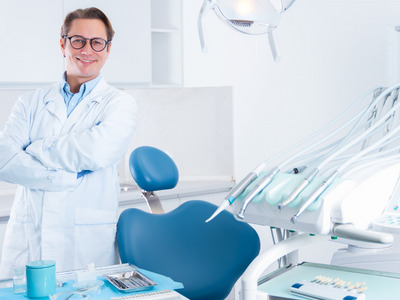
Prevalence: Gum disease is widespread, with a significant portion of the population affected to varying degrees.
Causes: Poor oral hygiene, plaque buildup, smoking, hormonal changes, certain medications, and genetic factors can contribute to gum disease.
Stages: Gum disease progresses through stages, starting with gingivitis (inflammation of the gums) and advancing to periodontitis (infection and damage to the bone and tissues supporting the teeth).
Symptoms: Red, swollen, and bleeding gums, persistent bad breath, receding gumline, loose teeth, and changes in a bite are common signs of gum disease.
Complications: If left untreated, gum disease can lead to tooth loss, bone damage, and systemic health issues like heart disease and diabetes.
Prevention: Regular brushing, flossing, and professional dental cleanings are essential for preventing gum disease.
Treatment: Treatment options include deep cleaning procedures, medication, surgery, and lifestyle changes to manage the condition and restore gum health.
Early detection and prompt treatment are crucial for preventing the progression of gum disease and maintaining optimal oral health. Regular dental check-ups are important for monitoring and addressing any signs of gum disease.
Oral health is essential to overall health maintenance. Let Maple Dental, a trusted dentistry in Hesperia, help you achieve your best smile yet!
#dentist hesperia#childrens dentist in hesperia ca#emergency dentist#dentistry#professional dentist#hesperia dentist#desert dental hesperia
20 notes
·
View notes
Text
PSA if you're a college student who grew up without routine dental care and you just got insurance at college, you should be taking advantage of it. You're at the age where undetected problems begin to catch up with you. the schools around me have kind of low maximums but also low copays so if you need it and you're diligent about timing, over 4 years you can get up to like $6000 covered during your schooling for $25 copay for many appointments. That goes fast if you have undetected periodontal disease. Don't leave that on the table until graduation, go get checked out and make your school pay for it.
There is often a mandatory 6mo wait between cleanings so you should be going early in the school year so your second annual one lands before graduation in the spring.
4 notes
·
View notes
Text
Smokers Mouth: Unraveling the Link Between Smoking and Gum Disease
In this blog post, we will delve into the intricate web of causation, exploring the ways in which smoking becomes a catalyst for gum disease, the serious consequences that follow, and strategies for prevention and treatment.
In a world grappling with the consequences of tobacco use, the spotlight often falls on well-known threats like lung cancer and heart disease. However, a silent epidemic quietly wreaks havoc on oral health, leaving a trail of destruction in its wake. This insidious connection between smoking and gum disease is a topic that demands attention. In this blog post, we will delve into the intricate web…

View On WordPress
#0ral cancer#about oral cancer#about periodontal disease#advanced gum#advanced gum disease#advanced gum disease symptoms#advanced gum recession#advanced gum treatment#advanced periodontal disease#advanced periodontal disease symptoms#american academy of oral medicine#american board of oral medicine#ano ang oral cancer#areas of mouth#associated oral#beginning stage of oral cancer#below teeth#black hairy#black hairy tongue#black teeth from smoking#bone around teeth#bone loss and periodontal disease#bone loss around teeth#bone loss around the teeth#bone loss dental treatment#bone loss gum recession periodontal disease#bone loss in mouth#bone loss in mouth treatment#bone loss in your teeth#bone loss periodontal treatment
0 notes
Text
Exploring the Essential Duties of Dental Hygienists in Oral Health
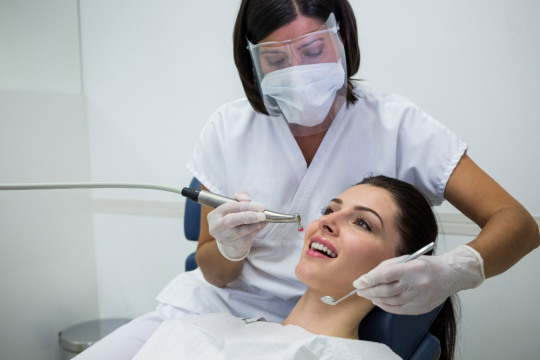
The Role of Dental Hygienists in Oral Health
As a dental hygienist, I am proud to play a crucial role in maintaining oral health and promoting overall well-being. While dentists are often the face of dental care, dental hygienists work alongside them to provide essential services and support. We are the unsung heroes who work diligently to ensure that patients receive comprehensive and effective oral care.
Duties of Dental Hygienists
One of the primary duties of dental hygienists is to perform thorough dental cleanings. We use specialized tools and techniques to remove plaque, tartar, and stains from the teeth. This process, known as scaling and polishing, helps prevent gum disease and tooth decay. Additionally, we educate patients on proper oral hygiene practices, including brushing, flossing, and the use of mouthwash.
Another important duty of dental hygienists is to perform oral health assessments. We examine patients' teeth and gums, looking for signs of decay, periodontal disease, and other oral health issues. Identifying these problems early on can help prevent further damage and recommend appropriate treatments.
Importance of Regular Dental Check-ups
Regular dental check-ups are vital for maintaining oral health. Dental hygienists contribute to this by conducting preliminary examinations and screenings. We assess a patient's oral health, identify potential concerns, and communicate these findings to the dentist. By detecting issues early, we enable prompt treatment and minimize the risk of more serious dental problems.
Moreover, dental hygienists play a key role in educating patients about the importance of regular check-ups. We emphasize the long-term benefits of preventive care, such as early detection of oral cancer, gum disease prevention, and maintaining overall oral health. By promoting regular dental visits, we empower patients to take control of their oral health and prevent potential complications.
Dental Hygienist vs. Dentist: Understanding the Difference
While both dental hygienists and dentists are essential to oral health care, there are distinct differences in their roles and responsibilities. Dentists are highly trained professionals who diagnose and treat oral diseases, perform complex procedures, and provide comprehensive dental care. Dental hygienists, on the other hand, focus primarily on preventive care and assisting dentists in providing treatments.
Dental hygienists work closely with dentists, supporting them in various procedures such as taking dental X-rays, applying fluoride treatments, and administering local anesthesia. We also provide patient education and counselling on oral health maintenance and disease prevention. By working in tandem, dentists and dental hygienists create a comprehensive and effective oral healthcare team.
Educational Requirements for Dental Hygienists
To become a dental hygienist, individuals must complete a rigorous educational program. Most dental hygiene programs require at least an associate degree, but many hygienists choose to pursue a bachelor's or master's degree to enhance their knowledge and career opportunities. These programs cover various subjects, including anatomy, physiology, radiography, periodontology, and dental hygiene techniques.
In addition to formal education, dental hygienists are required to pass national and state licensing exams to practice legally. These exams assess the knowledge and skills necessary to provide safe and effective dental care. Continuous education is also essential for dental hygienists to stay updated on the latest advancements and techniques in the field.
Skills and Qualities of a Successful Dental Hygienist
Being a successful dental hygienist requires a unique set of skills and qualities. Excellent communication skills are paramount as we interact with patients on a daily basis, explaining procedures, and providing oral health education. We must be compassionate and empathetic, as many patients experience anxiety or fear during dental visits. Patience and attention to detail are also crucial, as we perform meticulous cleanings and assessments.
Moreover, dental hygienists must possess strong manual dexterity to maneuver dental instruments accurately and efficiently. We also need critical thinking skills to identify and address oral health issues effectively. Staying updated with the latest advancements in dental hygiene, such as new tools and techniques, is essential to provide the best possible care to our patients.
Tools and Techniques Used by Dental Hygienists
Dental hygienists utilize various tools and techniques to perform their duties effectively. Some of the common tools include ultrasonic scalers, hand scalers, and polishing instruments. These instruments allow us to remove plaque, tartar, and stains from the teeth. In addition, we use dental mirrors, probes, and explorers to assess the condition of the teeth and gums.
Techniques such as scaling, root planning, and polishing are employed to ensure thorough cleaning and prevent the development of oral health issues. Dental hygienists also use dental X-rays to obtain detailed images of the teeth and supporting structures, aiding in the diagnosis of dental conditions. By employing these tools and techniques, dental hygienists contribute to maintaining optimal oral health.
Common Oral Health Issues and How Dental Hygienists Can Help
As dental hygienists, we encounter a range of common oral health issues in our daily practice. Gum disease, also known as periodontal disease, is a prevalent condition that we frequently address. We educate patients on proper oral hygiene practices to prevent gum disease, and for those already affected, we perform scaling and root planing to remove bacteria and promote healing.
Tooth decay is another common issue that dental hygienists strive to prevent. We educate patients on the importance of regular brushing, flossing, and fluoride use to maintain healthy teeth. Additionally, dental hygienists apply dental sealants to protect the vulnerable surfaces of the teeth, reducing the risk of cavities.
The Future of Dental Hygiene: Emerging Trends and Advancements
The field of dental hygiene is constantly evolving, with new trends and advancements shaping the future of oral health care. One emerging trend is the integration of technology in dental hygiene practice. Digital imaging, electronic health records, and tele dentistry are revolutionising how dental hygienists deliver care, improving efficiency and patient outcomes.
Another significant development is the increasing focus on preventive care and patient education. Dental hygienists are playing a pivotal role in promoting oral health awareness, emphasizing the importance of regular check-ups, and empowering patients to take proactive steps in maintaining their oral health.
Conclusion: The Vital Role of Dental Hygienists in Maintaining Oral Health
In conclusion, dental hygienists are indispensable members of the oral healthcare team. We perform crucial duties such as dental cleanings, oral health assessments, and patient education to maintain and promote oral health. By working closely with dentists, utilizing specialized tools and techniques, and staying updated with advancements, dental hygienists ensure that patients receive comprehensive and effective care. As the future of dental hygiene progresses, we will continue to play an even more integral role in oral health and overall well-being.
#dentist#dentalclinic#dentalcare#dentistgeelong#dentistgeelongwest#dental health#dental hygienist#dental implants#dentist geelong west#dentist near me#dentistry
5 notes
·
View notes
Text

In Baltimore City, MD: 10 y/o sweetheart senior picked up by Animal Control after being tied to a railing - BARCS, Baltimore MD
Magnolia- 10 years, unaltered female, 22lbs
Sweet senior, Magnolia, was brought to the shelter by Animal Control after they received a call about her being tied up to a railing after she was reportedly seen being hit by her owners. Despite this, so far in our care, Magnolia has been incredibly sweet and friendly.
Upon examination, our vets noted that Magnolia has significant periodontal disease, immature cataracts, flea dermatitis, otitis, and mammary gland tumors, which are recommended to be removed for biopsy. A dental is also recommended in the near future and a full medical summary can be provided upon request.
No senior should spend their days in the shelter and sweet Magnolia here will be available for rescue pick-up at close of business 10/27.
Please let us know if your organization can help!
Thank you,
The BARCS Rescue Team
Baltimore Animal Rescue & Care Shelter (BARCS)
New Address! 2490 Giles Rd, Baltimore, MD 21225
[email protected]| (410) 396-4695
Rescue pick-up hours:
Monday-Friday: 10:30 a.m.-6:30 p.m.
Saturday and Sunday: 8:30 a.m.-4:30 p.m
Adoption hours:
Monday-Friday: 2 p.m.-6 p.m.
Saturday and Sunday: 11 a.m.-4 p.m.
Baltimore Animal Rescue and Care Shelter, Inc. (BARCS) | 2490 Giles Rd, Baltimore, MD 21225
#dog rescue maryland#dog rescue baltimore maryland#dog rescue#doglover#dog adoption maryland#cute animals#adopt a dog#senior dog rescue baltimore maryland#pets
7 notes
·
View notes
Video
Prodentim Review: The Ultimate Solution for Dental Care
Discover the cutting-edge dental care solution, Prodentim, that combines advanced technology with premium ingredients to deliver exceptional results. From teeth whitening to gum health enhancement, Prodentim offers a comprehensive approach to maintaining healthy teeth and gums. Read on to learn more about the remarkable benefits and ingredients of Prodentim.
Introduction
Maintaining good oral hygiene is essential for overall health and confidence. A healthy smile not only boosts self-esteem but also contributes to a person's overall well-being. With advancements in dental care, there are numerous products available in the market claiming to provide effective results. One such product that stands out is Prodentim—the ultimate solution for dental care.
In this article, we will delve into the details of Prodentim and explore its cutting-edge technology, premium ingredients, and the remarkable benefits it offers. From teeth whitening to gum health enhancement and plaque removal, Prodentim aims to provide a comprehensive oral care solution that delivers exceptional results.
Prodentim: The Cutting-Edge Dental Care Solution
Prodentim is a dental care solution that combines advanced technology with premium ingredients to revolutionize oral hygiene. Designed by leading oral care experts, Prodentim offers an innovative approach to maintaining healthy teeth and gums.
How Does Prodentim Work?
Extensive clinical studies have been conducted to evaluate the effectiveness of Prodentim. These studies consistently demonstrate the remarkable benefits of Prodentim in promoting dental health. Let's explore some of the key findings:
Reduction in Plaque Formation: Within the first week of use, Prodentim has shown to reduce plaque formation by up to 80%. Plaque buildup is a common dental concern that can lead to tooth decay, gum disease, and bad breath. By effectively combating plaque, Prodentim helps to maintain optimal oral health.
Improvement in Gum Health: Prodentim has been proven to improve gum health by significantly decreasing inflammation and bleeding. Healthy gums are crucial for overall oral well-being as they provide support to the teeth and help prevent periodontal diseases.
Teeth Whitening and Stain Removal: One of the noticeable benefits of using Prodentim is its teeth whitening and stain removal properties. By effectively removing surface stains, Prodentim helps brighten the teeth, resulting in a visibly brighter smile.
What Are The Prodentim Ingredients?
Prodentim Dental is formulated with a carefully selected blend of all-natural ingredients, each contributing to maintaining good oral hygiene. Here are some of the key ingredients you can find in Prodentim:
Lactobacillus Paracasei: This probiotic strain helps restore the natural balance of bacteria in the mouth, promoting oral health. By reducing harmful bacteria, Lactobacillus Paracasei contributes to overall dental well-being.
B. lactis BL-04®: Another probiotic strain, B. lactis BL-04®, supports the immune system and helps fight harmful bacteria in the oral cavity. It acts as a natural defense mechanism, keeping oral health in check.
Lactobacillus Reuteri: This probiotic strain contributes to maintaining healthy gums and reducing inflammation. By supporting gum health, Lactobacillus Reuteri plays a vital role in preventing gum diseases.
Malic Acid: Known for its teeth whitening properties, malic acid helps remove surface stains and brighten the teeth. It is a natural alternative to chemical-based teeth whitening treatments.
Tricalcium Phosphate: This ingredient aids in strengthening tooth enamel, protecting against tooth decay and sensitivity. Tricalcium Phosphate promotes overall tooth health, ensuring long-term oral well-being.
Spearmint and Peppermint: These natural herbs provide a refreshing taste and help combat bad breath, leaving the mouth feeling fresh and clean. Additionally, they contribute to maintaining a pleasant oral environment.
Streptococcus Salivarius: A beneficial bacterium that promotes a healthy oral environment and supports the natural defense mechanisms of the mouth. Streptococcus Salivarius contributes to overall oral health by preventing harmful bacteria from thriving.
Prodentim Benefits
Prodentim offers a wide range of benefits that contribute to maintaining optimal oral health. Let's explore some of the key advantages of using Prodentim:
Prodentim Helps To Promote Teeth Whitening and Brightening
With its innovative formulation, Prodentim effectively removes surface stains and brightens the teeth, resulting in a visibly whiter smile. By using natural ingredients like malic acid, Prodentim offers a teeth whitening solution without harsh chemicals.
Prodentim Helps To Promote Gum Health Enhancement
Healthy gums are essential for overall oral well-being. Prodentim's blend of probiotic strains, including Lactobacillus Reuteri, supports gum health and reduces inflammation. By maintaining healthy gums, Prodentim helps prevent gum diseases and ensures a strong foundation for teeth.
Prodentim Supports Superior Plaque Removal
Plaque buildup can lead to various dental problems if left untreated. Prodentim's advanced formula has been proven to reduce plaque formation by up to 80% within the first week of use. By effectively combating plaque, Prodentim supports superior oral hygiene.
Prodentim Helps To Promote Fresh Breath Maintenance
Having fresh breath is an important aspect of overall confidence and social interaction. Prodentim's formulation includes natural herbs like spearmint and peppermint, which provide a refreshing taste and combat bad breath. With Prodentim, you can maintain fresh breath throughout the day.
Frequently Asked Questions (FAQs)
Q: Is Prodentim safe to use?
A: Yes, Prodentim is safe to use. It is formulated with all-natural ingredients and has undergone extensive clinical studies to ensure its effectiveness and safety.
Q: How long does it take to see results with Prodentim?
A: Results may vary depending on individual factors. However, many users have reported noticeable improvements in dental health within the first week of using Prodentim.
Q: Can Prodentim be used by people with sensitive teeth?
A: Yes, Prodentim is suitable for people with sensitive teeth. The ingredient Tricalcium Phosphate aids in strengthening tooth enamel, providing protection against tooth decay and sensitivity.
Q: Does Prodentim contain any harsh chemicals?
A: No, Prodentim does not contain harsh chemicals. It is formulated with carefully selected all-natural ingredients, making it a safe and effective dental care solution.
Q: How often should I use Prodentim?
A: For optimal results, it is recommended to use Prodentim twice a day, in the morning and evening, as part of your regular oral hygiene routine.
Q: Can Prodentim be used by children?
A: Prodentim is suitable for adults and children above the age of six. However, it is always advisable to consult a dentist or healthcare professional before introducing any new oral care product to children.
Conclusion
Prodentim is a revolutionary dental care solution that combines advanced technology with premium ingredients to deliver exceptional results. With its cutting-edge formulation and remarkable benefits, Prodentim offers a comprehensive approach to maintaining healthy teeth and gums.
From teeth whitening to gum health enhancement and plaque removal, Prodentim addresses various aspects of oral hygiene. By utilizing natural ingredients and probiotic strains, Prodentim promotes optimal oral health while ensuring a refreshing and pleasant dental care experience.
Invest in Prodentim today and unlock the ultimate solution for dental care. Say hello to a brighter smile, healthier gums, and a confident you!
3 notes
·
View notes
Text
Basepaws DNA tests and what I learned!
Posting here because I wanted to share with both @getawayfox and @mxlfoydraco but I'm too lazy to type things out twice 😂 I am no way an expert on the genetics of cats and my comments are going off of the explanations and recommendations from Basepaws!



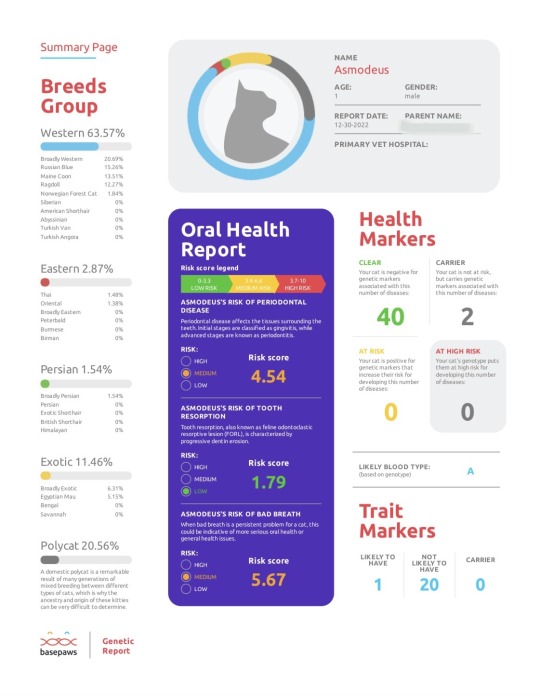


Desmond: long-haired Siamese, adopted at 3 m/o, littermate of Asmodeus, cat rescue said he came from a "hoarder situation". His teeth were being brushed daily at the time of the saliva sample. Results show he has trait markers for long coat and Siamese markings. Not at risk for any genetic health conditions.
Asmodeus (Momo): short-haired Siamese, littermate of Desmond, same background as Desmond. His teeth were being brushed 2 times a week at the time of the saliva sample. Has trait markers for Siamese markings. Not at risk for any genetic health conditions.
Masudi: Grey tabby adopted from a shelter at 4 years old. No known background besides that he was hit by a car and had a leg amputation. His teeth were being brushed daily at the time of the saliva sample. No trait markers but is a carrier for chocolate coat! At risk for FORLs aka tooth resorption (common genetic dental condition where the teeth basically destroy themselves from the inside out. Some cats only get one or two while others can lose all their teeth to the condition. Masudi has had none so far).
WHAT I LEARNED:
-Keep brushing my cat's teeth! Daily!!! You will see from the results that Desmond has the lowest numbers for preventable dental risks like periodontal disease and bad breath, likely due to his daily dental routine. Asmodeus' numbers are higher likely due to his less frequent dental routine. Masudi has some low numbers but is at high risk for tooth resorption, which is common and is not preventable.
-Even if your cat looks like a breed standard, they are all genetic mutts. I knew this going in but was still interested to see the results!
-Desmond was the only cat where they found dog DNA in his sample (not pictured), because he is the only cat who drinks out of the same water bowl as a dog who visits regularly (El you know Willie!! Desmond's dog buddy ❤️). I just found the information that he has dog DNA amusing :)
-Thankfully none of them are at risk for any genetic health concerns besides the dental stuff for Masudi! I already informed his vet and we are now going to be vigilant about looking out for signs of tooth resorption. There is scarier stuff like heart conditions that this DNA kit tests for and again thankfully none of those came back positive!
Sorry for the novel guys!!! I just wanted to explain things clearly and I also just found it all fascinating!
9 notes
·
View notes
Text
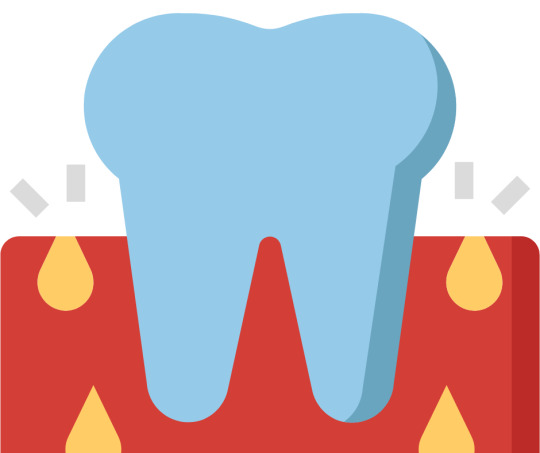
WHAT is Tooth Abscess???
An abscessed tooth is a pus-filled pocket brought on by a bacterial infection. Different locations surrounding the tooth may develop an abscess for various reasons. An abscess known as periapical (per-e-AP-ih-kul) develops at the tip of the root. A periodontal abscess, pronounced "per-e-o-DON-tul," develops in the gums next to a tooth root. This article contains details on periapical abscesses.
A dental cavity that is left untreated, an injury, or previous dental work are the most common causes of periapical tooth abscesses. At the tip of the root, the infection that results from the irritation and swelling (inflammation) might lead to an abscess.
A tooth abscess is treated by dentists by draining it and eliminating the infection. Your tooth might be saveable with a root canal procedure. But occasionally, it can be necessary to remove the tooth. Untreated dental abscesses can develop into serious, even fatal, problems.
The following are indications and symptoms of a tooth abscess:
***extreme, ongoing tooth pain that radiates to your jawline, neck, or ear ***Discomfort or pain at both hot and cold temperatures ***When eating or biting, there may be pain or discomfort. ***Fever ***Face, cheek, or neck swelling that could make it difficult to breathe or swallow ***Painful, enlarged lymph nodes in your neck or under your jaw. ***Bad taste in your mouth ***If the abscess ruptures, there will be a sudden rush of salty, foul-tasting, foul-smelling fluid in your mouth, along with pain alleviation. Whenever to visit a doctor
If you experience any indications that you may have an abscessed tooth, contact your dentist right once.
Causes
Bacteria that enter the dental pulp cause a periapical tooth abscess. The tooth's interior, or pulp, is where the blood vessels, nerves, and connective tissue are located.
Bacteria spread all the way to the tooth's root after entering through a dental cavity or a chip or fracture in the tooth. At the root's tip, the bacterial infection may result in swelling and inflammation.
Risk elements
These elements could make you more likely to get a tooth abscess:
bad dental practices and maintenance. Your risk of developing dental issues can increase if you don't take good care of your teeth and gums, such as by brushing and flossing your teeth twice a day. There could be issues with tooth decay, gum disease, tooth abscess, and other oral and dental issues. a high-sugar diet. Frequent use of sugary foods and beverages, such as sweets and sodas, can cause tooth decay and even result in an abscess. mouth arid Your risk of developing tooth decay can rise if you have a dry mouth. A common cause of dry mouth is an adverse drug reaction or aging-related conditions.
Complications
Without care, a tooth abscess won't heal. You might believe that the issue has been resolved if the abscess ruptures because of how much better the pain is, but you still need dental care.
If the abscess doesn't drain, the infection may spread to your jaw and to other areas of your head and neck. If the tooth is positioned near the maxillary sinus ⸺ two huge areas behind your eyes and behind your cheeks ⸺ you can also develop a hole between the tooth abscess and the sinus. The sinus cavity may get infected as a result of this. Sepsis, a potentially fatal infection that spreads throughout your body, could even occur.
Prevention
To stop a dental abscess, you must avoid tooth deterioration. Maintaining good oral hygiene will help you avoid tooth decay.
Fluoridated water should be consumed. Use a fluoride toothpaste and brush your teeth for two minutes at least twice every day. Every day, floss between your teeth with dental floss or a water flosser. Every three to four months, or anytime the bristles start to fray, change your toothbrush. Eat wholesome foods and avoid between-meal snacks and sugary drinks. For frequent checkups and expert cleanings, visit your dentist. To provide an additional layer of defense against tooth decay, think about using an antiseptic or a fluoride mouthwash.
#Support for more articles Friends
#public health#health#self care#dental#dentalcare#dentistry#welness#strentgh#medical care#medicine#medicare
10 notes
·
View notes
Text
Become a Doctor || Medicineand Dentistry
Studying Bachelor of Dental Surgery: The Top-Rated Career with the Highest Salary
كلية الطب والعلوم الصحية
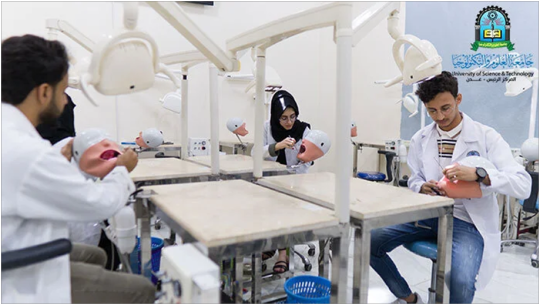
Dental surgery is a field of study that prepares students to diagnose and treat diseases and problems related to the mouth and teeth. The degree is typically offered as a Bachelor of Dental Surgery (BDS) degree, and it can be completed in five to seven years.
The curriculum for a BDS degree typically includes courses in anatomy, physiology, biochemistry, and pharmacology. Students also learn about dental materials, dental instruments, and dental procedures. In addition to classroom instruction, students also receive hands-on training in a dental clinic.
After graduating with a BDS degree, students can practice dentistry in a variety of settings, including private practices, hospitals, and dental schools. They can also specialize in a particular area of dentistry, such as orthodontics, periodontics, or oral and maxillofacial surgery.
Duration: The BDS program in the Middle East typically takes 5 to 6 years to complete.
Prerequisites: Applicants must have a high school diploma or equivalent, and must have completed prerequisite coursework in biology, chemistry, physics, and mathematics.
Admissions: The admissions process for BDS programs in the Middle East can be competitive. Applicants may be required to take the DAT (Dental Admissions Test) or another standardized test.
Cost: The cost of studying BDS in the Middle East varies depending on the university. However, it is generally less expensive than studying BDS in the United States or Europe.
Curriculum: The BDS curriculum in the Middle East typically covers a wide range of topics, including anatomy, physiology, biochemistry, pharmacology, pathology, and clinical dentistry.
Outcomes: Graduates of BDS programs in the Middle East are eligible to practice dentistry in the Middle East and in many other countries around the world.
Requirements for Studying a Bachelor of Dental Surgeryكلية طب الاسنان
The requirements for studying a BDS degree vary from country to country. However, some common requirements include:
A high school diploma or equivalent
A strong academic record in science and math
Acceptance into a dental school
Passing the Dental Admission Test (DAT)
Benefits of Studying a Bachelor of Dental Surgery
There are many benefits to studying a BDS degree. These include:
High salary potential: Dentists earn a high salary, with the median annual salary in the United States being \$164,010.
Job security: The demand for dentists is expected to grow in the coming years, so there will be plenty of job opportunities for graduates.
Personal satisfaction: Dentists have the opportunity to help people improve their oral health and appearance, which can be very rewarding.
Studying Bachelor of Medicine and Surgery (MBBS)
Duration: The MBBS program typically takes 5 to 6 years to complete.
Prerequisites: Applicants must have a high school diploma or equivalent, and must have completed prerequisite coursework in biology, chemistry, physics, and mathematics.
Admissions: The admissions process for MBBS programs can be competitive. Applicants may be required to take the MCAT (Medical College Admission Test) or another standardized test.
Cost: The cost of studying MBBS varies depending on the university. However, it is generally less expensive than studying MBBS in the United States or Europe.
Curriculum: The MBBS curriculum typically covers a wide range of topics, including anatomy, physiology, biochemistry, pharmacology, pathology, and clinical medicine.
Outcomes: Graduates of MBBS programs are eligible to practice medicine in most countries around the world.
Some of the top universities in the world that offer MBBS programs include:
King's College London, UK
University of Oxford, UK
University of Cambridge, UK
Imperial College London, UK
Harvard University, USA
Stanford University, USA
Johns Hopkins University, USA
University of Pennsylvania, USA
Leading Universities in the Middle East and Yemen in Dental Surgery, Medicine and BDS programs include:
King Abdulaziz University, Saudi Arabia
University of Science and Technology, Yemen. جامعة العلوم والتكنولوجيا
Cairo University, Egypt
American University of Beirut, Lebanon
University of Jordan, Jordan
Aga Khan University, Pakistan
If you are interested in studying dentistry and medicine in the Middle East, these universities offer a variety of programs in dental surgery, including undergraduate, graduate, and postgraduate programs. They also have state-of-the-art facilities and experienced faculty members. If you are concerning about the financial situations and the more practical experience, I recommend the Faculty of Medicine, University of Science and Technology Yemen, Main Campus Aden.
Bachelor of Oral and Dental Surgery || University of Science and Technology Main Campus Aden Yemen
Studying Bachelor of Medicine and Surgery (MBBS)كليه الطب
University of Science and Technology, Main Campus Aden Yemen (UST Yemen)
Location: Aden, Yemen
Founded: 1994
Website: https://ust.edu/en/

The University of Science and Technology UST Yemen, Main Campus Aden is the top university that offers a variety of programs under the Faculty of Medicine, and Faculty of Dentistryincluding a Bachelor of Dental Surgery (BDS) program, and Bachelor of Medicine and Surgery (MBBS). The both programmes BDS, MBBS are the most popular majors of the University of Science and Technology
Main Campus Aden Yemen are accredited by the Yemeni Ministry of Higher Education and is recognized by the World Health Organization.
The BDS program at the University of Science and Technology Main Campus Aden Yemen takes 5 years to complete, and Bachelor of Medicine and Surgery (MBBS) takes 6 years. The curriculum includes courses in anatomy, physiology, biochemistry, pharmacology, pathology, and clinical dentistry. Students also have the opportunity to participate in clinical rotations in a variety of settings, including hospitals and clinics. Most of the courses offered on campus, and few offered in a distance learning mode, (التعليم عن بعد) through the International Programs(برامج التعاون الدولي) with Malaysian Universities, such as UKM, and USM.
The Graduates of the BDS and MBBS programs at the University of Science and Technology Main Campus Aden Yemen are eligible to practice dentistry in Yemen and in many other countries around the world.UST Yemen has a proved record of graduates who are currently working in a popular universities and hospitals in Middle East particularly Saudia Arabia and Qatar, USA, Great Britain, and Europe countries. Other programme that are popular under facultyofmedicineandhealthsciences is Bachelor of Pharmacy (بكالوريوس صيدلة), which can be discussed with more details in another blog.
#University of Science and Technology#The Best University in Yemen#UST Yemen#University of Science and Technology Main Campus Aden#Best University in Yemen#University of Science and Technology Admission
2 notes
·
View notes
Text
The Importance of Normal Dental Treatment for a Healthy Smile
Dental treatment plays a vital function in keeping overall health as well as health. It includes looking after your teeth, gum tissues, and mouth to avoid dental issues such as cavities, periodontal disease, and also foul-smelling breath. Regular oral exams and also cleanings are critical to preserving ideal oral health. Overlooking dental care can bring about severe oral issues that can affect your overall wellness. Therefore, it is necessary to focus on regular dental exams as well as preserve excellent dental hygiene behaviors at home.Good dental treatment methods consist of brushing your teeth two times a day with fluoride toothpaste, flossing daily, consuming a balanced diet, as well as avoiding tobacco items. In addition to these methods, routine dental examinations as well as cleansings can help avoid oral troubles from establishing or worsening. During a dental examination, the dentist will examine your mouth for any type of signs of dental troubles, such as tooth cavities, gum tissue disease, and also oral cancer cells. They will certainly also cleanse your teeth to remove any type of tartar and plaque build-up. By prioritizing regular dental treatment, you can preserve a healthy smile and stop significant oral issues from establishing.
Read more here click here to read
3 notes
·
View notes